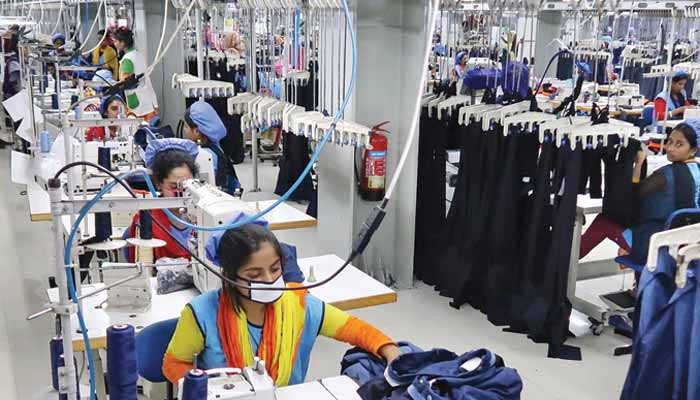Over the past few decades, Sri Lanka has emerged as a significant player in the global apparel and textile industry, consistently attracting attention from major brands and retailers worldwide. Known for its commitment to ethical manufacturing, high-quality production, and innovative capabilities, Sri Lanka has positioned itself as a sourcing destination of choice for many international brands. This blog delves into the reasons behind Sri Lanka’s rise as an apparel and textile hub, examining key factors such as sustainability, skilled labor, competitive advantages, and technological innovations driving this transformation.

Ethical Manufacturing and Compliance
One of the primary factors distinguishing Sri Lanka in the apparel and textile sector is its strong commitment to ethical manufacturing. The country’s “Garments Without Guilt” initiative, launched in the mid-2000s, set a global benchmark for socially responsible and ethical production in the industry. This initiative focuses on labor rights, fair wages, and environmentally conscious practices, ensuring that workers are treated with respect and that manufacturing processes minimize environmental impact. As a result, Sri Lanka has become the go-to option for brands seeking transparency in their supply chain and a commitment to human rights and environmental protection. This ethical focus appeals to brands and consumers alike, contributing to Sri Lanka’s reputation as a trusted sourcing destination.
Skilled and Specialized Workforce
Sri Lanka’s workforce is another critical factor driving its success in apparel and textile manufacturing. With a long history in the industry, Sri Lanka has developed a highly skilled labor force trained in advanced techniques and specialized manufacturing processes. Many factories in Sri Lanka focus on producing high-quality garments, such as lingerie, swimwear, and activewear, which require skilled craftsmanship and attention to detail. This specialization allows Sri Lanka to cater to niche markets and produce products with a higher value-added component, making it an attractive option for premium and luxury brands. Furthermore, continuous training programs and collaborations between industry and academia have ensured that the workforce remains competitive and capable of meeting evolving global demands.
Commitment to Sustainability and Green Manufacturing
In recent years, sustainability has become a critical concern in the apparel and textile industry, with brands and consumers increasingly seeking eco-friendly and socially responsible products. Sri Lanka has been at the forefront of this movement, with many factories adopting green manufacturing practices and certifications. The country is home to one of the world’s first carbon-neutral apparel manufacturers and several LEED-certified (Leadership in Energy and Environmental Design) factories, showcasing its commitment to environmental stewardship. These factories prioritize energy efficiency, water conservation, and waste reduction, contributing to a more sustainable and resilient supply chain. As sustainability becomes a non-negotiable requirement in the industry, Sri Lanka’s green credentials make it an appealing choice for environmentally conscious brands.
Strategic Geographic Location
Sri Lanka’s strategic geographic location further strengthens its position as a global apparel hub. Situated at the crossroads of major shipping routes between Europe and Asia, Sri Lanka offers a logistical advantage that allows for quicker delivery times and reduced transportation costs. This proximity to key markets, including the Middle East, India, and China, enables efficient distribution and helps brands maintain more flexible and responsive supply chains. Additionally, Sri Lanka has access to key ports, such as the Port of Colombo, one of the busiest transshipment hubs in South Asia. These logistics benefits are increasingly important in a global economy where speed-to-market is essential for brands aiming to keep up with fast-paced consumer trends.
High-Quality Production and Innovation
Sri Lanka has built a reputation for producing high-quality apparel, driven by a focus on precision, craftsmanship, and innovation. Sri Lankan manufacturers have invested heavily in advanced technologies and state-of-the-art machinery, enabling them to deliver intricate designs, customizations, and value-added services. This emphasis on quality is especially evident in Sri Lanka’s expertise in categories like lingerie, sportswear, and technical garments, which require specialized knowledge and skill. Moreover, Sri Lankan manufacturers work closely with international brands, often engaging in collaborative product development to bring innovative ideas to life. This focus on quality and innovation attracts brands looking for reliable partners who can deliver complex, high-value products to meet global standards.
Competitive Pricing with Ethical Standards
While Sri Lanka may not offer the lowest manufacturing costs compared to some other countries, it provides a competitive price-to-quality ratio that appeals to brands seeking value for money. The country’s commitment to ethical and sustainable practices adds further value, giving brands the assurance that their products are produced responsibly. In a global market where consumers are increasingly concerned about the ethical implications of their purchases, Sri Lanka’s blend of competitive pricing and ethical standards creates a compelling value proposition. By offering high-quality products at competitive prices without compromising on social and environmental standards, Sri Lanka has carved out a unique position in the apparel industry.
Strong Government Support and Industry Collaboration
The Sri Lankan government has played a proactive role in supporting the growth of the apparel and textile industry, recognizing its importance to the national economy. Policies aimed at promoting exports, developing infrastructure, and fostering industry collaboration have been instrumental in driving growth. The Joint Apparel Association Forum (JAAF), an industry body, has been particularly active in promoting Sri Lanka’s “Garments Without Guilt” campaign, advocating for worker rights, and encouraging sustainability initiatives. The collaboration between the government, industry bodies, and manufacturers has created a supportive ecosystem that allows the apparel sector to thrive and remain competitive on a global scale. This coordinated effort ensures that Sri Lanka’s industry remains agile and responsive to changing market conditions, further enhancing its attractiveness as a sourcing destination.
Adoption of Advanced Technologies
Sri Lankan manufacturers have embraced technological advancements, recognizing the role of innovation in maintaining a competitive edge. Automation, robotics, and digital production processes are increasingly being adopted in Sri Lankan factories, allowing for greater efficiency, precision, and cost-effectiveness. Moreover, digital technologies like 3D printing, virtual sampling, and digital design tools are helping manufacturers reduce lead times and waste, supporting more sustainable and agile production models. These technologies not only improve productivity but also enable manufacturers to offer customizations and on-demand production, catering to the evolving needs of brands and consumers alike. By integrating these advanced technologies into their operations, Sri Lankan manufacturers are positioning themselves as leaders in innovation within the global apparel industry.
Enhanced Focus on Women’s Empowerment
Sri Lanka’s apparel and textile sector is notable for its focus on women’s empowerment, with a significant portion of the workforce comprising female employees. Many manufacturers have implemented policies and programs that support women’s advancement, offer fair wages, and ensure safe and inclusive working environments. These initiatives align with global efforts to promote gender equality and create inclusive workplaces, further boosting Sri Lanka’s appeal to international brands that prioritize corporate social responsibility. This focus on women’s empowerment not only enhances the reputation of Sri Lanka’s apparel industry but also contributes to the social and economic well-being of the country, creating a positive impact beyond the factory floor.
Robust Infrastructure and Investment in Expansion
Sri Lanka’s infrastructure is another key asset supporting the growth of its apparel and textile industry. The country has invested heavily in infrastructure development, including road networks, ports, and industrial zones, which facilitate efficient production and export processes. The government has also encouraged foreign direct investment (FDI) in the sector, leading to the establishment of several high-tech factories and production facilities across the country. This investment in infrastructure and expansion is vital for meeting the growing demand from global brands and ensuring that Sri Lanka can continue to scale its manufacturing capabilities. By building a robust infrastructure, Sri Lanka is reinforcing its position as a reliable and scalable sourcing hub for international apparel brands.

Sri Lanka’s rise as a hub for apparel and textile sourcing is the result of a unique combination of ethical manufacturing practices, skilled labor, strategic location, and a commitment to quality and innovation. The country’s focus on sustainability, supported by government policies and industry collaboration, sets it apart as a leader in responsible and high-quality production. As global brands continue to seek reliable partners who can deliver not only on quality but also on social and environmental standards, Sri Lanka’s appeal as a sourcing destination is likely to grow. With ongoing investments in technology, infrastructure, and workforce development, Sri Lanka is well-positioned to maintain its status as a preferred apparel and textile hub, meeting the demands of an evolving and increasingly conscious global market.


